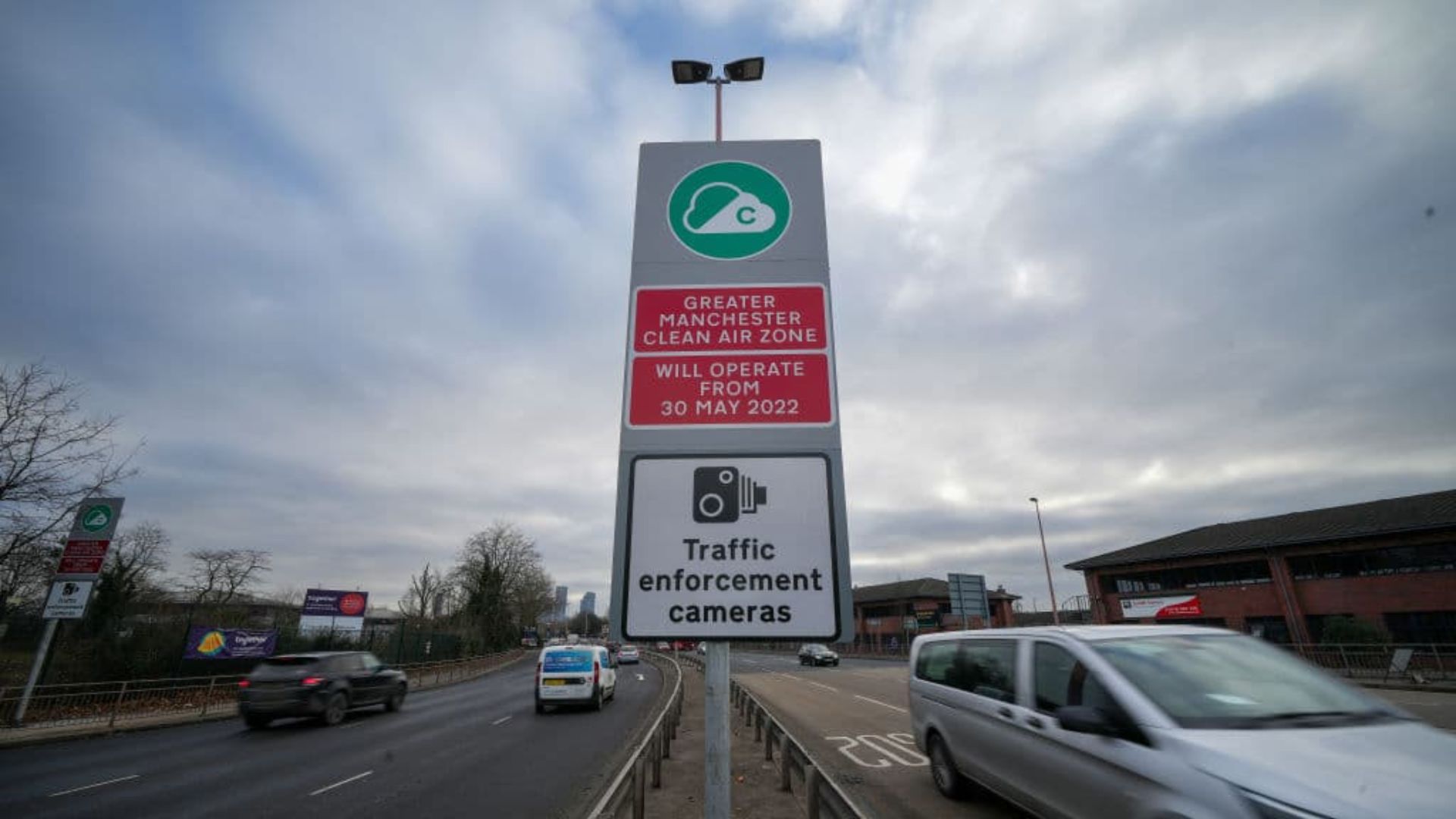Greater Manchester has backed away from charging drivers of more polluting vehicles for entering the city. A Clean Air Zone was due to come into effect across Greater Manchester in May 2022 but was pulled in February 2022 for a review following a public backlash. Work has since been ongoing to find ways to bring Greater Manchester’s air quality in line with legal limits without adding expense to the taxpayer. Proposals to reduce air pollution in Greater Manchester were presented on 13th December, with the region’s leaders insisting their latest proposals would “deliver clean air faster than a charging zone could”. Under the latest plans, £86m, which has already been awarded to Greater Manchester by the government for clean air projects, would be spent on initiatives such as zero-emission electric buses, improved electric charging infrastructure, a clean taxi fund and measures to improve traffic flows. The Greater Manchester Combined Authority says these measures will reduce emissions more quickly and effectively than the planned chargeable Clean Air Zone.

The mayor of Greater Manchester, Andy Burnham, said on a radio call-in, “There will never be a Clean Air Zone charge while I’m mayor.” He told listeners: “I don’t think we’ll get working class people behind the drive to net zero if it’s about tax, charges, bans on things – basically making their lives suffer more. The only way we can do it is to give people incentives to do the right thing.” Andy Burnham said he was concerned about the financial pressure the clean air zone charges would have had on Greater Manchester drivers.
The new plan is expected to go before the Greater Manchester Air Quality Administration Committee on 20th December, which is recommended for approval. After that, Mr Burnham’s new plan will be taken to Westminster, where he hopes it will receive government support.
Burnham insisted he was not avoiding politically difficult decisions by jettisoning the charging zone. He said the decision to take Greater Manchester’s buses back into public control — which resulted in a legal challenge from the bus sector — had been “seismic” and was now fundamental to the new clean air plan.
“The way to do this was not to push people into hardship, to threaten people’s businesses and livelihoods,” he said. “The path to net zero has to be to take people with it rather than seeking to punish people.” He belives his alternative plan would be fairer than previous proposals to charge the drivers of more polluting vans, taxis and lorries.
Other major English cities, including London, Birmingham, Newcastle, Bradford and Bristol, have all introduced charging zones to tackle air pollution. However, charging drivers of polluting vehicles has become an increasingly contentious political issue. London mayor Sadiq Khan’s decision to extend the capital’s clean air charging zone was widely held responsible for Labour’s loss of the Uxbridge by-election in July, bringing the issue to national attention.
One in the eye for St Greta and her screaming climate panic fanclub.
A Mayor talking sense ?
Not sure it will catch on.
Glad to see a politician thinking about the people that matter